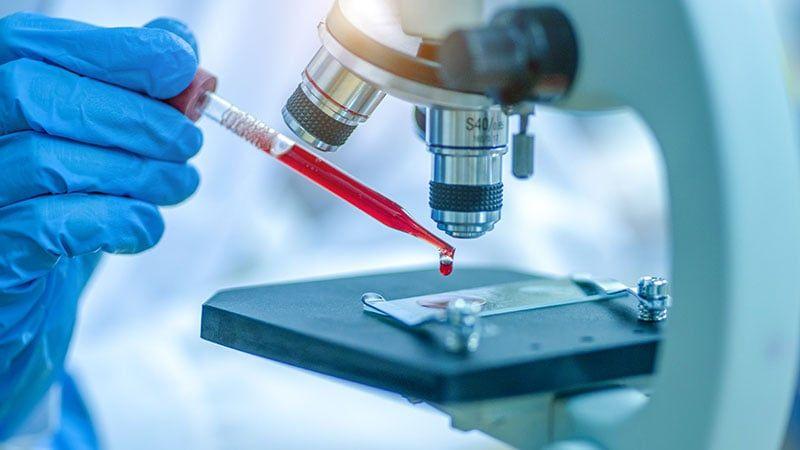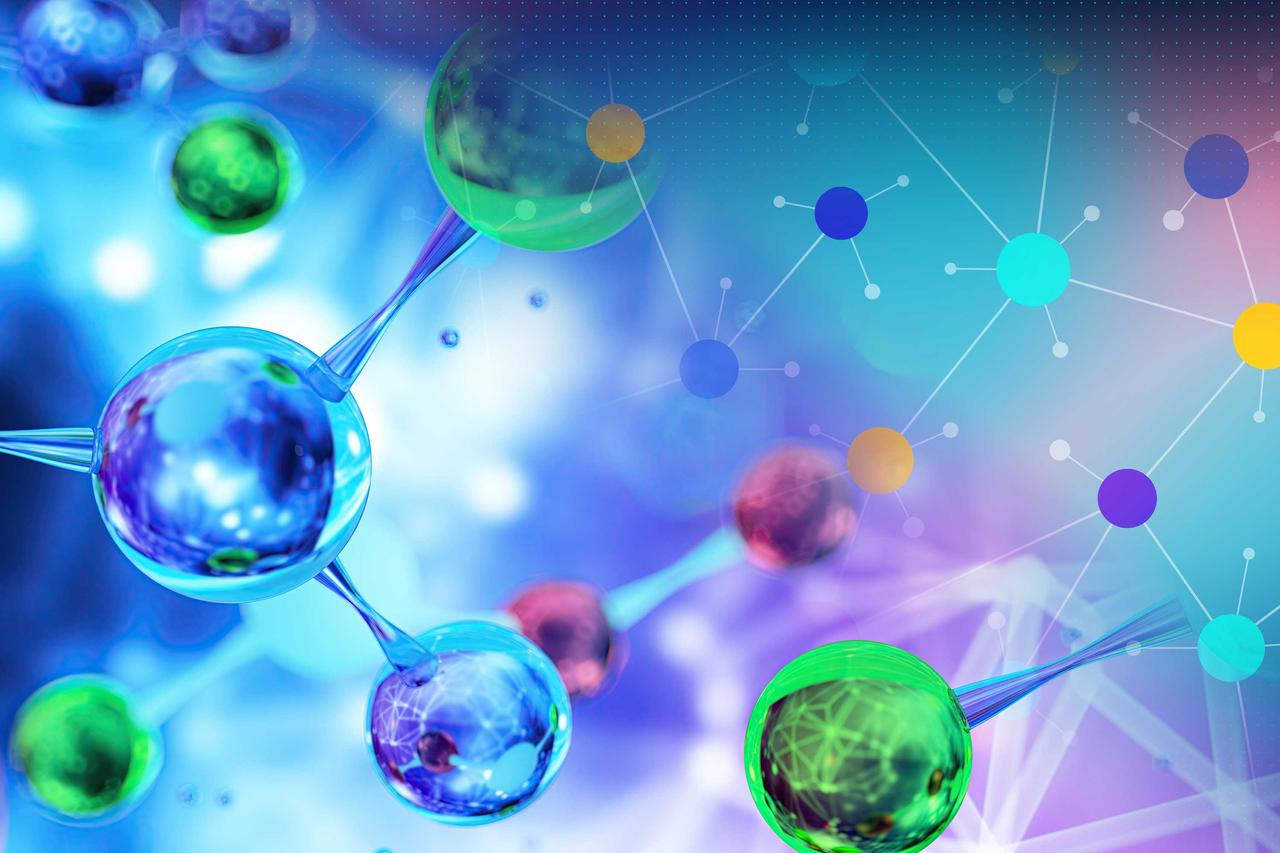Revolutionary Blood Test Detects Early-Stage Solid Tumors with High Accuracy Using AI
2 Sources
2 Sources
[1]
New blood test detects early-stage solid tumors with high accuracy
Spanish National Cancer Research Centre (CNIO)Jul 31 2025 Current methods for cancer diagnosis are based on identifying biomarkers - molecules that reveal a particular state or process in the body - produced by the tumour or associated proteins. Not surprisingly, these markers are more abundant once the tumour has already developed significantly. And the more advanced the tumour, the more difficult it is to find effective treatment options. Now, a team led by Gonçalo Bernardes, head of the Translational Chemical Biology Group at the Spanish National Cancer Research Centre (CNIO), has developed a test that can detect early-stage solid tumours with just a blood sample. In addition, the test also provides information relevant to the choice of treatment. The study has been published in the scientific journal Nature Communications. Studying the proteins that react to cancer To achieve this early detection, the team led by the Portuguese researcher focused the test not on the markers produced by the tumour, but on the body's defensive reaction to the cancer. Since the 19th century it has been known that the emergence of cancer cells causes changes in the immune system, and it was also known that these changes are more intense in cancer's earliest stages. But they had never been used for diagnosis. The new study focuses on them, specifically on the changes in blood proteins derived from cancer's disruption of the immune system. 'Our approach,' explains Gonçalo Bernardes, 'has proven particularly effective in detecting tumors at an early stage, which is crucial because, if we detect them early, we can treat many types of cancer'. Artificial intelligence to search for patterns But this approach posed a problem to the team: human blood contains more than 5,000 proteins, which makes it extremely difficult to analyse. So they used bioinformatics analysis and narrowed the scope of the study to five amino acids: lysine, tryptophan, tyrosine, cysteine and cysteine not bound to disulphide bonds. They then subjected the sample to reactions that emit fluorescence when light is applied to them - fluorogenic reactions - and revealed the exact concentration of each of these amino acids in the plasma. Using the artificial intelligence tool machine learning, they identified patterns in these concentrations that could be translated into diagnostic signals. As they explain in the published article, they applied this technique to samples from 170 patients and were able to identify 78% of cancers with a 0% false positive rate. Bernardes also points out that the test is easy to use, requiring only a small blood sample and the use of simple reagents that can be found in any hospital. To make the diagnosis, teh team led by Bernardes, also a professor at the University of Cambridge (UK), is developing a platform that will analyse the data. Other diseases and treatment response The samples studied so far did not belong exclusively to people with cancer: 'It is very important to note,' says Gonçalo Bernardes, "that by analysing samples from patients with other diseases, we have found that the signals are different. For example, the immune signals of a person with SARS-Covid are different from the signals of a person with cancer, as are the signals of different types of cancer and even cancer in its different stages. We can identify all of that with our test. And these unique signals for each type of cancer also provide other information of enormous interest for clinical practice: whether or not the patient will respond to certain treatments. The article describes that the test predicted with 100% accuracy that a patient would not respond to anti-metastatic treatment. When it predicted that a patient would respond, the accuracy was 87%. Therefore, the authors claim that the test could also be used for precision medicine in the choice of treatments. A sample of 170 patients has been sufficient to get the study this far, but the researcher acknowledges that much more data is needed to complete the commercial development of the test. To this end, two clinical trials are already underway in the UK - funded by the UK's national health system - and a number of other trials are underway in countries such as the US and China. Once developed, the platform is expected to be commercialised through a spin-off company in Cambridge called Proteotype Ltd, which Bernardes co-founded with other authors. Spanish National Cancer Research Centre (CNIO)
[2]
Blood test analyzes immune protein changes to detect early-stage tumors and guide treatment
Current methods for cancer diagnosis are based on identifying biomarkers -- molecules that reveal a particular state or process in the body -- produced by the tumor or associated proteins. Not surprisingly, these markers are more abundant once the tumor has already developed significantly. And the more advanced the tumor, the more difficult it is to find effective treatment options. Now, a team led by Gonçalo Bernardes, head of the Translational Chemical Biology Group at the Spanish National Cancer Research Centre (CNIO), has developed a test that can detect early-stage solid tumors with just a blood sample. In addition, the test also provides information relevant to the choice of treatment. The study has been published in the journal Nature Communications. Studying the proteins that react to cancer To achieve this early detection, the team led by the Portuguese researcher focused the test not on the markers produced by the tumor, but on the body's defensive reaction to the cancer. Since the 19th century, it has been known that the emergence of cancer cells causes changes in the immune system. It was also known that these changes are more intense in cancer's earliest stages, but they have never been used for diagnosis. The new study focuses on them, specifically on the changes in blood proteins derived from cancer's disruption of the immune system. "Our approach," explains Bernardes, "has proven particularly effective in detecting tumors at an early stage, which is crucial because, if we detect them early, we can treat many types of cancer." Artificial intelligence to search for patterns But this approach posed a problem to the team: human blood contains more than 5,000 proteins, which makes it extremely difficult to analyze. So they used bioinformatics analysis and narrowed the scope of the study to five amino acids: lysine, tryptophan, tyrosine, cysteine and cysteine not bound to disulfide bonds. They then subjected the sample to reactions that emit fluorescence when light is applied to them -- fluorogenic reactions -- and revealed the exact concentration of each of these amino acids in the plasma. Using the artificial intelligence tool machine learning, they identified patterns in these concentrations that could be translated into diagnostic signals. As they explain in the published article, they applied this technique to samples from 170 patients and were able to identify 78% of cancers with a 0% false positive rate. Bernardes also points out that the test is easy to use, requiring only a small blood sample and the use of simple reagents that can be found in any hospital. To make the diagnosis, the team led by Bernardes, also a professor at the University of Cambridge (UK), is developing a platform that will analyze the data. Other diseases and treatment response The samples studied so far did not belong exclusively to people with cancer: "It is very important to note," says Bernardes, "that by analyzing samples from patients with other diseases, we have found that the signals are different. For example, the immune signals of a person with SARS-COVID are different from the signals of a person with cancer, as are the signals of different types of cancer and even cancer in its different stages. We can identify all of that with our test." And these unique signals for each type of cancer also provide other information of enormous interest for clinical practice: whether or not the patient will respond to certain treatments. The article describes that the test predicted with 100% accuracy that a patient would not respond to anti-metastatic treatment. When it predicted that a patient would respond, the accuracy was 87%. Therefore, the authors claim that the test could also be used for precision medicine in the choice of treatments. A sample of 170 patients has been sufficient to get the study this far, but the researcher acknowledges that much more data is needed to complete the commercial development of the test. To this end, two clinical trials are already underway in the UK.
Share
Share
Copy Link
A new blood test developed by researchers at the Spanish National Cancer Research Centre can detect early-stage solid tumors with high accuracy and provide treatment guidance, using AI to analyze immune system changes.
Breakthrough in Early Cancer Detection
Researchers at the Spanish National Cancer Research Centre (CNIO) have developed a groundbreaking blood test that can detect early-stage solid tumors with high accuracy. Led by Gonçalo Bernardes, head of the Translational Chemical Biology Group at CNIO, the team has published their findings in the scientific journal Nature Communications
1
.Innovative Approach to Cancer Diagnosis
Unlike traditional cancer diagnosis methods that rely on biomarkers produced by tumors, this new test focuses on the body's immune response to cancer. The researchers discovered that changes in the immune system are more pronounced in the earliest stages of cancer, providing a unique opportunity for early detection
2
.
Source: Medical Xpress
Leveraging Artificial Intelligence
To overcome the challenge of analyzing over 5,000 proteins in human blood, the team employed bioinformatics and artificial intelligence. They narrowed their focus to five specific amino acids: lysine, tryptophan, tyrosine, cysteine, and cysteine not bound to disulfide bonds. Using fluorogenic reactions and machine learning, they identified patterns in amino acid concentrations that could be translated into diagnostic signals
1
.
Source: News-Medical
Impressive Results and Potential Applications
The test has shown remarkable results in initial studies:
- Identified 78% of cancers with a 0% false positive rate in a sample of 170 patients
- Differentiated between cancer and other diseases, such as SARS-COVID
- Distinguished between different types and stages of cancer
- Predicted treatment response with high accuracy (100% for non-responders to anti-metastatic treatment, 87% for responders)
Related Stories
Ease of Use and Future Development
Bernardes emphasizes the test's simplicity, requiring only a small blood sample and readily available reagents. The team is developing a platform to analyze the data, which is expected to be commercialized through a spin-off company, Proteotype Ltd
1
.Ongoing Clinical Trials and Future Prospects
While the initial sample of 170 patients has yielded promising results, the researchers acknowledge the need for more extensive data to complete the test's commercial development. Two clinical trials are currently underway in the UK, funded by the national health system, with additional trials planned in countries such as the US and China
2
.This innovative blood test represents a significant advancement in cancer diagnostics, offering the potential for earlier detection and more personalized treatment approaches. As clinical trials progress and more data becomes available, the medical community eagerly anticipates the widespread implementation of this groundbreaking technology in cancer care.
References
Summarized by
Navi
Related Stories
AI-Powered Blood Test for Early Cancer Detection to be Trialed in UK's NHS
23 Apr 2025•Health

Revolutionary AI-Powered Biosensor Enables Early Cancer Detection Using Light Signals
11 Jul 2025•Science and Research

MIT and Microsoft develop AI system CleaveNet to design sensors for early cancer detection
07 Jan 2026•Science and Research

Recent Highlights
1
ByteDance's Seedance 2.0 AI video generator triggers copyright infringement battle with Hollywood
Policy and Regulation

2
Demis Hassabis predicts AGI in 5-8 years, sees new golden era transforming medicine and science
Technology

3
Nvidia and Meta forge massive chip deal as computing power demands reshape AI infrastructure
Technology





